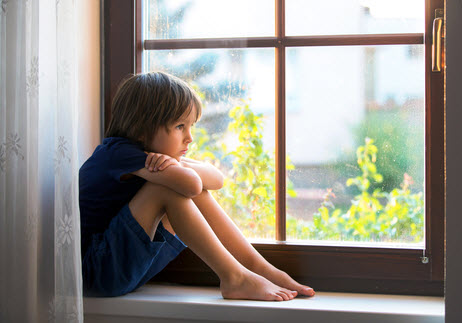A divorce can be difficult on every member of a family. Children, even very young children, are perceptive to their parents’ conflicts and can feel stressed about the changes to their lives that come with a divorce. The reality of potentially having to move, no longer seeing each parent every day, possibly meeting their parents’ new partners, and adjusting to a different routine can have a significant impact on a child’s mental and physical health. If you are a parent going through a divorce, you can take steps to reduce your child’s stress levels.
Know How Divorce Tends to Affect your Child’s Age Group and Gender
Although there are many other variables that can impact how a child is affected by his or her parents’ divorce, the child’s age and gender can help parents predict and recognize the mental health difficulties he or she faces. Boys and girls often exhibit different emotional responses to stressful family situations.
Preschoolers and school age children can suffer most from feeling like they have no control in a divorce. Teenagers can feel betrayed and may become angry and attempt to be more independent.
Look for Warning Signs
A few warning signs that a child is in mental distress about his or her parents’ divorce include:
- Acting out at school;
- Poor performance on schoolwork;
- Changed personality;
- Withdrawal from social activities;
- Changed eating or sleeping habits;
- Reduced self esteem; and
- An unwillingness to discuss the divorce or his or her feelings about it.
Encourage your child to communicate with you about the divorce. If your child has questions, answer them in an age-appropriate manner that provides enough information to satisfy the question without overwhelming your child. Keep these discussions positive – do not make negative comments about the divorce or your former partner, no matter how you feel about them.
Help your Child Receive Help if Necessary
If you observe one or more of the symptoms discussed above in your child, your child’s pediatrician can refer him or her to a child psychologist or licensed counselor. Consider working with a counselor who specifically handles divorce-related issues in children. Your child’s school psychologist or guidance counselor can also be a helpful resource for him or her. You, too, can help your child during and after your divorce. Maintain structure in your household, such as daily and weekly routines and a set of rules and expectations. This can help your child feel secure and eliminate feelings of confusion and anxiety.
Work with an Experienced Winter Park Divorce Attorney
As a parent, it can be difficult to know the right thing to do for your child when you are going through a divorce. Understand that you are not alone and when you need help for your child or yourself, your divorce lawyer can point you in the right direction to get that help. Contact Aubrey Law in Winter Park today to set up your initial consultation in our office.
Resources:
psychologytoday.com/blog/surviving-your-childs-adolescence/200908/parental-divorce-and-adolescents
livescience.com/37908-divorce-hardest-on-young-children.html

